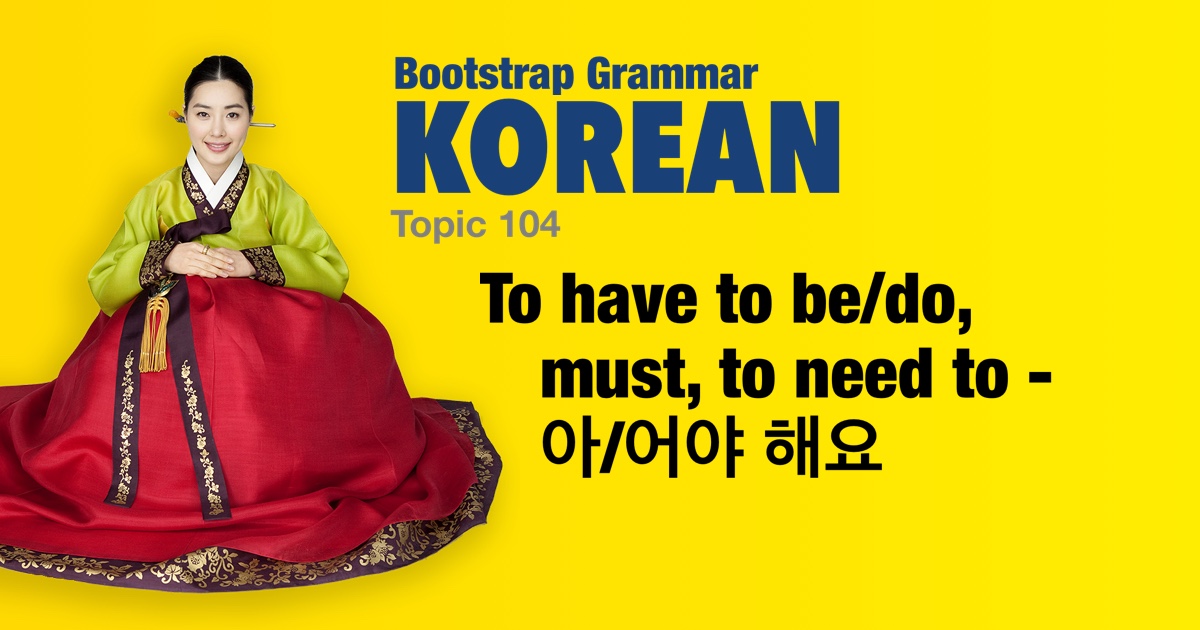Korean grammar - To have to be/do, must, to need to - 아/어야 해요 |
|||
|
|||
Pattern: Verb stem + 아/어야 해요 The Verb ending 아/어야 해요 is used to express requirement - to have to, must or to need to do something. It is common colloquially to use 돼요 in place of 해요 especially in informal 반말 (banmal). |
| Examples: | |
|
형은 세차해야 해요.
(My) older brother needs to do a carwash. |
|
|
식당은 늘 청결해야 해요.
Restaurants must be always clean.
|
|
|
모든 학생은 학교에서 마스크를 착용해야 했어요.
All students had to wear a mask at school.
|
|
|
공부해야 돼요.
(I) must study.
|
|
|
먹고 싶으면 요리를 해야 해요.
If (you) want to eat, (you) have to cook. |
|
|
남편은 회사에 일하러 가야 돼요.
(My) husband has to go to work at the company.
|
|
|
누나는 병원에 가야 되었어요.
(My) (male's) older sister had to go to the hospital.
|
|
|
저는 주말에 운전 연습해야 될 거예요.
On the weekend I will need to practice driving.
|
|
|
외출 후에 손을 씻어야 해요.
(You) should wash your hands after going out.
|
|
|
식전에 약을 복용해야 해요.
(You) must take the medicine before meals. |
|
|
신발을 벗어야 해요.
(I) have to take off (my) shoes. |
|
|
빨리 가야 돼요.
(You) have to go quickly.
|
|
|
아이가 감기에 안 걸리려면 따뜻한 옷을 입어야 해요.
(Your) child needs to wear warm clothes to avoid catching a cold. |
|
|
그는 다음 주부터 시험이 있어서 준비해야 해요.
He has an exam next week so (he) must prepare. |
|
|
그녀는 시력이 안 좋아서 안경을 써야 돼요.
She has poor eyesight and has to wear glasses. |
|
|
내일 시험이 있어요. 그래서 공부해야 돼요.
(I) have an exam tomorrow. So (I) have to study. |
|
|
여자 친구 생일이라서 선물을 사야 돼요.
It's (my) girlfriend's birthday, so (I) have to buy a present. |
|
|
오늘 너무 피곤해요. 집에서 쉬어야 돼요.
(I) am so tired today. (I) need to rest at home. |
|
|
한국어 연습으로 매일 일기를 써야 해요.
(I) have to write a diary every day to practice Korean. |
|
|
흐른 날에도 썬크림을 발라야 해요.
(You) should apply sunscreen even on cloudy days.
|
|
|
메일 어휘를 복습해야 해요.
Everyday (I) need to review vocabulary.
|
|
 |
|




